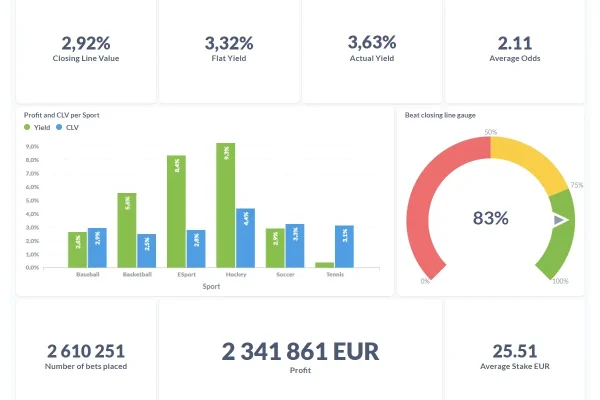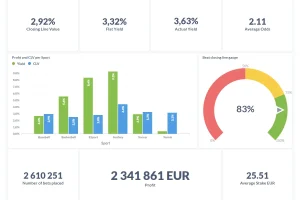Navigating the world of online gambling regulation is like trying to read a map that’s being redrawn in real-time. Just when you think you’ve got the lay of the land, a new territory opens up, each with its own unique set of rules, quirks, and opportunities.
For operators and players alike, understanding these evolving gambling regulations is crucial. It’s the difference between a smooth, secure experience and, well, running into a legal wall. Let’s dive into how some of the newest and most interesting jurisdictions are handling the deal.
The North American Puzzle: A Continent of Contrasts
Honestly, North America presents the most fascinating case study in regulatory contrast. You’ve got a patchwork of approaches that range from wide-open to tightly locked down.
The United States: A State-by-State Affair
Following the repeal of PASPA in 2018, the U.S. exploded onto the scene. But there’s no single “U.S. market.” It’s a fragmented mosaic. Each state is its own sovereign kingdom of gambling law.
- New Jersey & Pennsylvania: The heavyweights. They’ve embraced full-scale online casinos (slots, table games) alongside sports betting. The licensing process is rigorous—and expensive—but it offers access to massive, mature markets.
- New York: A paradox. It launched with a hugely successful sports betting model, but it’s all tax-heavy and limited to a handful of skins. Online casino games? Still strictly forbidden, leaving billions on the table, you know?
- Emerging States: Places like Ohio and Massachusetts are now coming online, often copying and tweaking models from the pioneers. The trend? High tax rates are becoming the norm, which honestly squeezes operator profits but funds state programs.
Canada: The Provincial Model
North of the border, it’s a different story. Gambling is largely managed by provincial crown corporations (like OLG in Ontario or Loto-Québec). For decades, this meant a monopoly. But that’s changing.
Ontario’s open market launch in 2022 was a game-changer. It allowed private operators to apply for licenses to compete alongside the provincial lottery. The result? A fiercely competitive and innovative market that’s become a blueprint for other provinces considering a similar path. The key takeaway? It’s possible to transition from a monopoly to a regulated open market successfully.
Latin America: The New Frontier
South of the U.S., things are moving fast. These markets are hungry for the economic boost and consumer protection that regulation brings.
Brazil: The Sleeping Giant Wakes Up
After years of false starts, Brazil finally passed federal legislation to regulate sports betting and iGaming in 2023. This is arguably the biggest deal in global gambling right now. We’re talking about a market of over 200 million people.
The proposed framework includes a hefty 18% tax on GGR, mandates local partnerships, and has strict responsible gambling and advertising rules. It’s a complex beast, but the potential is staggering. Everyone is watching to see how this giant gets to its feet.
Mexico: A Licensed Market with a Twist
Mexico has had a federal licensing system for years, but it’s… unique. The regulator, the Directorate General of Games and Raffles (DGOJ), grants a limited number of permits. The twist? These permits are often leased or sublicensed to international brands.
This creates a slightly convoluted market where brand ownership isn’t always clear to the consumer. The regulations are also considered a bit outdated, struggling to keep pace with tech innovation. It works, but it’s not the most streamlined model out there.
European Evolution: Mature Markets Tighten Up
Europe is the old guard of online gambling regulation, but that doesn’t mean it’s sitting still. The trend here is less about opening up and more about tightening consumer protections and cracking down on unlicensed operators.
The Netherlands: A Strict Re-Entry
The Netherlands launched its regulated online market, called KOA, in 2021 after a long delay. And they came out swinging. The regulations are among the strictest in Europe, particularly around advertising. Think no role models, no bonuses for players who show risky behavior, and a central register to exclude addicts.
It’s a market that prioritizes safety over breakneck growth—a philosophy that is increasingly resonating across the continent.
Germany: A Cautionary Tale of Complexity
Germany’s Interstate Treaty on Gambling 2021 was meant to unify a messy regulatory picture. In theory, a great idea. In practice? Well, it’s been criticized for being overly restrictive. A 5.3% tax on online slot stakes (not revenue!) is a huge burden on operators. There are also strict deposit and spin speed limits.
The result? A high barrier to entry and a market where the black market still holds a significant share. It shows that if regulations are too onerous, they can accidentally achieve the opposite of their goal.
Key Themes Shaping Modern Gambling Regulations
So, what ties all these new jurisdictions together? A few powerful trends are shaping the playbook.
- Responsible Gambling is Non-Negotiable: This isn’t a side note anymore. It’s central to every application. Mandatory tools like deposit limits, time-outs, and self-exclusion are standard. Regulators are now looking for proactive, data-driven approaches to player protection.
- The Tax Tug-of-War: Governments see a golden goose. Operators need a sustainable business model. Finding the tax rate sweet spot is the biggest battle in room negotiations. Too high, and you stifle the legal market; too low, and you leave public money on the table.
- Advertising Under the Microscope: The era of blanket advertising is over. Many new jurisdictions, like Ontario and the Netherlands, have strict rules on where, when, and how you can advertise gambling services. The focus is shifting to responsible messaging.
- Tech Compliance is King: You can’t just set up a website. Regulators demand integration with central reporting systems, real-time data feeds for monitoring, and sophisticated algorithms to track player behavior for signs of harm.
The Final Deal
There is no one-size-fits-all model for gambling regulation. The perfect legal landscape doesn’t exist. Each jurisdiction is a unique experiment, balancing economic incentive against social responsibility.
The most successful ones—the ones that actually protect players while fostering a healthy, competitive market—are those that listen. They learn from the mistakes and triumphs of others, remain adaptable, and remember that the goal isn’t just to issue licenses, but to build a safe ecosystem that endures. The map is still being drawn. And that’s what makes it so interesting.












